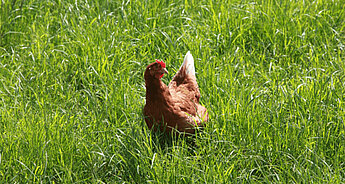Egg Allergy in Children

It's common for children to be allergic to egg protein, but most will outgrow it by age five.
What is it?
Egg allergy happens when the body mistakes the proteins found in eggs as harmful invaders and tries to attack them, causing allergic symptoms. An egg allergy can be to all forms of egg, or just eggs which aren’t thoroughly cooked. People can be allergic to just the egg white, just the yolk, or both.
Who gets it?
Egg allergy is more common in young people than in adults. Around 1 in 100 infants and children are thought to have an egg allergy, but 80% will ‘grow out’ of it by the time they are five years old.
Why does it happen?
Nobody really knows what causes egg allergy, but allergies do have a genetic link. This means that if others in your family have an allergy, it's more likely that you or your child will have an allergy, too.
What should you do if you think your child has an egg allergy?
If you think your child might be allergic to egg, it's important not to give him or her egg again until you have spoken to a GP. Your GP may want to do a skin prick test (SPT) or a blood test (called a RAST). Sometimes they might ask you to keep all egg from your child's diet to see if symptoms go away, and then add it back in (under medical supervision) to see if symptoms return.
Is there a treatment?
The only treatment for this allergy is to avoid egg. Some people need to avoid all egg, and others may be able to eat egg which is thoroughly cooked; this depends on how severe the allergy is.
Because many children with an egg allergy will ‘grow out’ of it, your GP may suggest periodically giving your child a “challenge,” where small amounts of egg are given under medical supervision, but it's important not to do this on your own.
What do you need to avoid?
Eggs on their own are fairly easy to avoid, but don't forget that eggs are also found in lots of different products: for instance, cakes, meringues, biscuits, pastries, pasta, batter or breadcrumbs, ice-creams, cheeses, Quorn, chocolates and some processed meat products all contain egg.
By law, egg must be listed on any product with an ingredients list, but beware of foods which are sold loose without packaging. When checking labels, look for the following words:
- Egg powder
- Dried/frozen/pasteurised egg
- Egg proteins (albumin, ovalbumin, globulin, ovoglobulin, livetin, ovomucin, vitellin, ovovitellin)
- Egg white/yolk
- Lysozyme
- Egg lecithin (E322)
Most big supermarkets can give you a list of egg-free foods on request; however, product formulations do change, so it's important to check the label as well. All foods that are labeled “suitable for vegans” will also be egg-free. You can also buy egg-replacers to use in home cooking, either from large supermarkets or specialist health food shops.
Dietary concerns
For the average baby or toddler, avoiding eggs isn't likely to cause any nutritional problems; protein, the main nutrient in eggs, is just as easy to get from other foods such as meat, cheese, beans and milk. However, if your child doesn't eat some of these other main sources of protein (such as meat or milk), then you may want to see a dietitian to be sure your little one gets all the right things he or she needs in order to grow.
HiPP products
All HiPP packaging has an ingredients list, plus a 'CONTAINS' box (printed in yellow underneath the ingredients list). If a HiPP product contains egg, we'll mention it in both the ingredients listing and 'CONTAINS' box.


